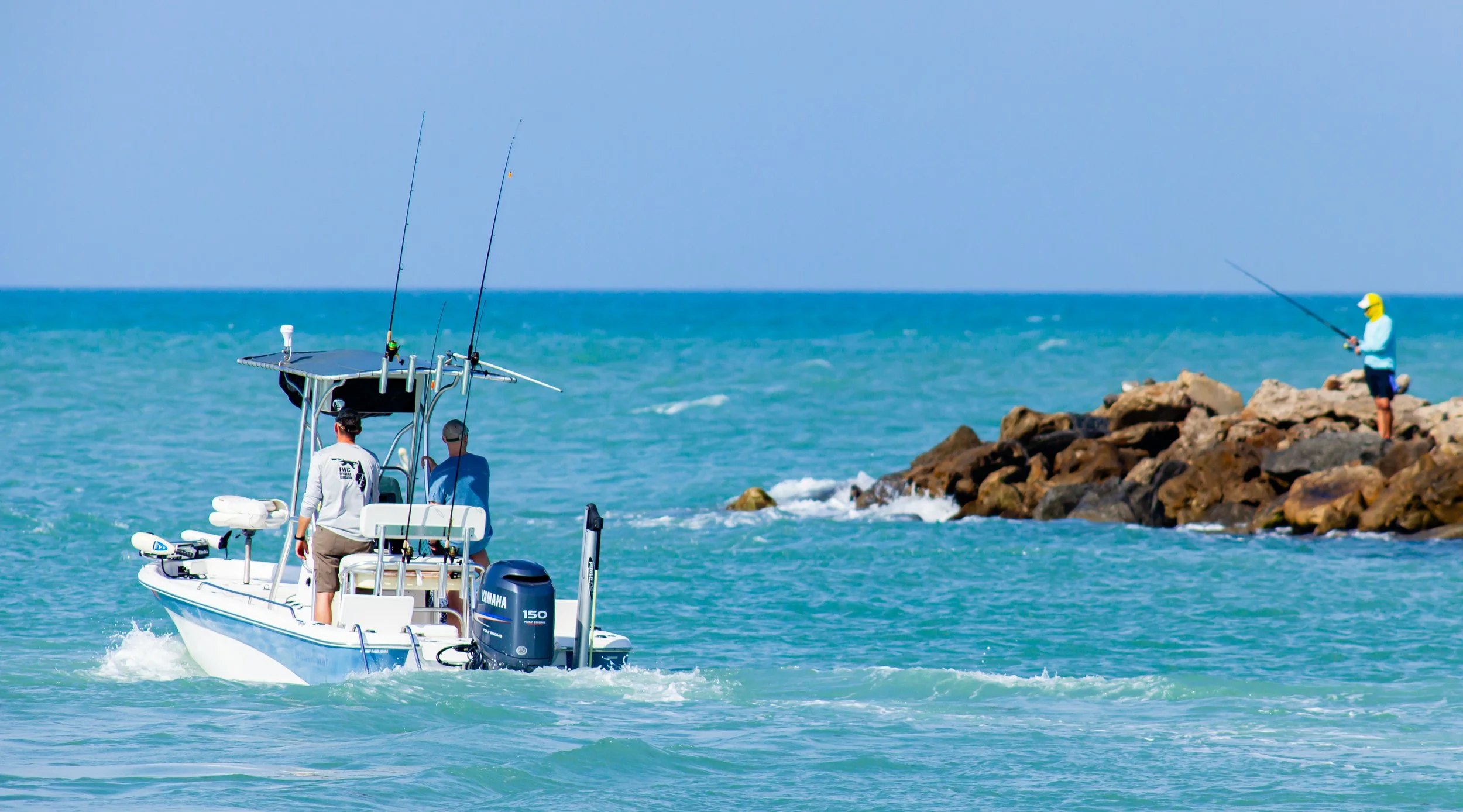state of the resource
Healthy marine fisheries and their habitats deserve our concern and attention. The 2022 IPCC Assessment Report provides a continuing litany of impacts to ocean health, and the picture is grim. Without dramatic action, our marine fisheries and habitats – and saltwater fishing – face a tough road ahead. But it’s not too late to make a difference.
At Tomorrow's Fish, we believe it is the angler’s responsibility to advocate for the solutions that will allow ocean fisheries to thrive over the long term.
some Evidence
The following observed impacts are gleaned from Statement of World Aquatic Scientific Societies on the Need to Take Urgent Action against Human-Caused Climate Change, Based on Scientific Evidence:
Shifts in species composition, behavior, abundance, and biomass production are being document NOW.
Lobster, cod, mackerel, coral reef fishes, and other commercially important species are either moving poleward to deeper waters or declining.
Coastal ecosystems are being transformed, degraded, or lost, either largely or in part due to climate change, including sea grass meadows, mangroves, coral reefs, and kelp forests.
Carbon emissions cause global ocean acidification, which is affecting the survival of organisms, especially shellfish, and accelerating coral reef erosion.
Carbon emissions cause global ocean acidification, which is affecting the survival of organisms, especially shellfish, and accelerating coral reef erosion.
Reductions in global ocean dissolved oxygen concentrations have occurred over the past five decades.
Climate change is interacting with other stressors such as excess nutrient input, overharvesting, and novel species interactions to further suppress marine ecosystems.
The Response: Climate-Ready Fisheries
The foundation of climate-ready fisheries is science-based and precautionary. It is fishery management that keeps catch at sustainable levels and accounts for individual ecosystem structure, functioning, and variability.
Preparing for and adapting to climate change will not look the same for every fishery. Impacted fisheries will require management to mitigate, adapt, and respond. For example, one fishery may exhibit biological changes to fish growth, survival and reproduction, while another undergoes changes in species relationships, changes to habitat, presence of diseases, and a host of other factors.
The ability of our management systems to adapt quickly and effectively to new problems, such as shifting fish stocks and emerging fisheries.
At its core, climate-ready fisheries will require protecting the ecosystem as a whole— protecting and restoring habitats, both for fish and their prey and improving water quality, as two examples.
Developing climate-ready fisheries will require the development of new tools and innovative approaches to ensure healthy fisheries in the face of climate change. A vital first step is maintaining and expanding long-term monitoring programs and stock assessments that are essential to science-based management.
Primary Source: Climate Change and Fisheries, Ocean Conservancy
Some Recommendations:
The following recommendations were developed by a Blue Ribbon panel convened by AFFTA and the AFFTA Fisheries Fund to identify the primary threats to the sustainability of our marine fisheries. Comprised of top scientists and managers, the panel crafted a set of solutions that—if implemented—will strengthen marine fisheries conservation and management and help lead to more abundant recreational fisheries.
Give Me More!
IPCC Reports on Climate Change. Intergovernmental Panel on Climate Change (2022).
Climate policies—not fisheries agreements—may be the best insurance against fisheries loss. Emma Bryce, Anthropocene (March 2020)
Impacts of historical warming on marine fisheries production. Free, C.M., et al., Science 363: 979–983 (2019).
Global Warming Is Hitting Ocean Species Hardest, Including Fish Relied on for Food. Bob Berwyn, Climate News (2019).
Impacts of climate change on fisheries and aquaculture: Synthesis of current knowledge, adaptation and mitigation options. Barange, M., et. al, FAO Fisheries and Aquaculture Technical Paper, No. 627 (2018).
Projected impacts of climate change on marine fish and fisheries. Hollowed, A.B. et al, ICES Journal of Marine Science, Volume 70, Issue 5, September 2013, Pages 1023–1037 (2013).


